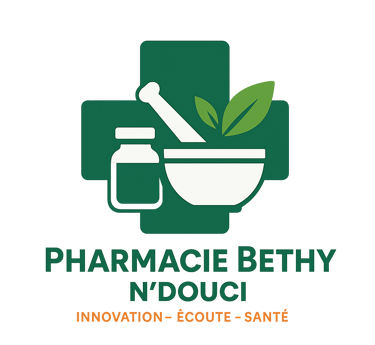
Self-Medication in Côte d’Ivoire: Hidden Health Risks
Learn why excessive self-medication is dangerous. Pharmacie Bethy in N’douci offers expert advice to help you make safe, informed healthcare decisions.
Dr N'GUESSAN Habib Michael
6/2/20251 min read
Innovation - Compassion - Health
🧭 Introduction
In Côte d’Ivoire, easy access to certain over-the-counter medicines and the lack of reliable health information drive many people to self-medicate. While this practice can sometimes be helpful for managing minor ailments, it becomes dangerous when overused, misinformed, or influenced by harmful popular beliefs.
❓ What Is Self-Medication?
Self-medication refers to taking drugs without medical advice, often to treat perceived minor symptoms such as fever, headaches, cough, or stomach pain.
It includes:
Using leftover medications from past treatments
Following advice from friends or relatives
Buying medicines from pharmacies without a prescription
🇨🇮 A Widespread Practice in Côte d’Ivoire
In both urban and rural areas, many Ivorians self-medicate due to financial constraints, habit, or mistrust of healthcare structures.
According to the National Institute of Statistics (INS, 2021), over 60% of people treat common symptoms without seeing a healthcare professional.
⚠️ The Dangers of Excessive Self-Medication
Incorrect Dosages
Overdosing can cause severe poisoning, especially in children.Drug Interactions
Some medications should never be taken together and can trigger dangerous reactions.Masked Symptoms
Self-treatment can delay the diagnosis of serious conditions like malaria, tuberculosis, or hypertension.Antibiotic Resistance
Improper use of antibiotics leads to the development of resistant bacteria, which are harder and costlier to treat.
(Sources: Institut Pasteur – SARA Project, WHO – GAVI)
📍 Real-Life Examples
A young woman repeatedly took paracetamol for abdominal pain, delaying the diagnosis of acute appendicitis.
A child was hospitalized after consuming a cough syrup inappropriate for his age, resulting in drug poisoning.
✅ How to Stay Safe
Always consult a qualified healthcare provider before taking any medication.
Read the patient information leaflet carefully.
Never share your medication with others.
Purchase drugs only from licensed pharmacies.
📣 Raising Awareness
Campaigns like the one led by UPSA in Côte d’Ivoire (2019) against street medicine aim to educate the population about the dangers of uncontrolled self-medication.
🩺 Conclusion
Excessive self-medication is not a sign of independence — it’s a threat to public health.
At Pharmacie Bethy, we encourage everyone to make informed, responsible medical decisions.
Health may be priceless, but it has rules. Let’s respect them, together.
📚 Sources & References
Institut National de la Statistique (2021) – Availability of essential medicines in health centers
👉 World Bank ReportInstitut Pasteur – SARA Project – Surveillance of antibiotic resistance in Africa
👉 pasteur.frWorld Health Organization (2023) – Antimicrobial resistance overtakes malaria, HIV, and TB
👉 gavi.orgUPSA (2019) – Campaign against street medication in Côte d’Ivoire
👉 upsa.comYuma, A. P. et al. (2023) – Self-medication among university students in DRC
👉 PMC – Pan African Medical Journal
Pharmacie Bethy
💊 Our Services
Health screenings and personalized medical advice.
📞 Contact Us
+225 07 57 99 91 77
© 2025. All rights reserved.


